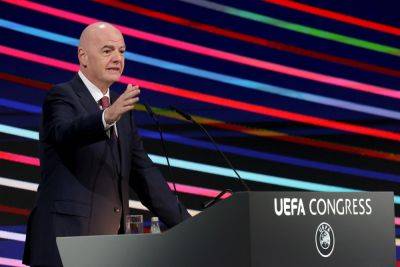Unity to acrimony: Tone of U.S.-Canada-Mexico World Cup changes with tariffs, 51st state talk
Seven years ago, when a joint bid by the United States, Canada and Mexico was awarded the 2026 World Cup, rifts created by tariffs — yes, back then, too! — and a proposed border wall were glossed over because of the neighbours' longstanding political and economic alliances.
"The unity of the three nations was the overriding theme articulated by Carlos Cordeiro, then-president of the U.S. Soccer Federation. "A powerful message," he called it.
Well, here we are now, with the soccer showcase arriving in North America in about 15 months, and President Donald Trump back in office — inciting trade wars between the neighbours, not to mention across the globe, by levying tariffs that come, then go, then return, with more promised, including what the Republican calls "reciprocal tariffs " starting Wednesday.
It's hard to know how, exactly, the current geopolitical fissures, made all the more stark every time Trump or those in his administration talk provocatively about making Canada the 51st state, might affect the World Cup, its organization and co-ordination, fans' travel plans and more.
"Oh, I think it's going to make it more exciting," was Trump's take during an Oval Office appearance with FIFA president Gianni Infantino last month. "Tension's a good thing."
Given the U.S. also is preparing to welcome the world for FIFA's Club World Cup in June, golf's Ryder Cup in September and the Los Angeles Olympics in 2028, the question becomes: Will the world want to come?
And, taking Trump's border and visa policies into account, will the world be able to?
Alan Rothenberg, who ran the 1994 World Cup and successfully oversaw the bid to host the 1999 Women's World Cup as then-president of U.S. Soccer, thinks the answers to those






